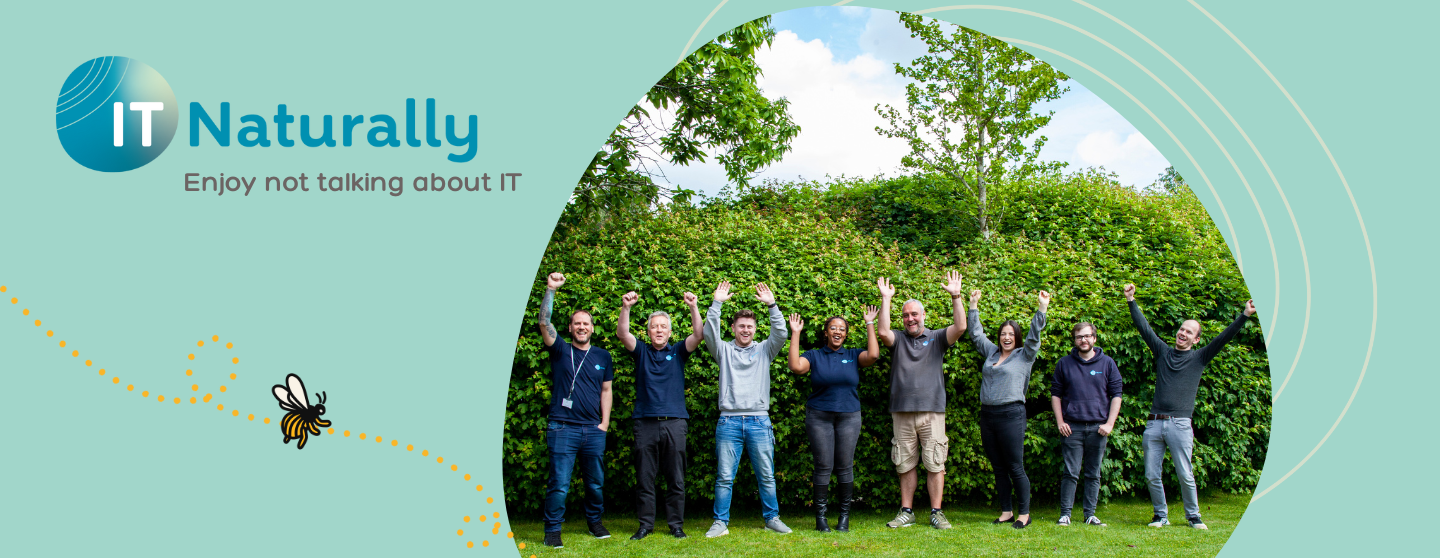

IT Naturally

Cambridgeshire, United Kingdom
May 2023
Other info service activities
Service with Minor Environmental Footprint
Germany,
United Kingdom
IT Naturally is aiming to change the face of the Managed Service Provider market, by putting people and the planet first. The real measure of our success is your team being able to forget about IT. Because when IT Naturally is your MSP, it just works. Your people don’t want IT stopping them from doing what they do best. They might not care about our (amazing) Customer Satisfaction scores, (couldn’t do without) accreditations and (probably) the greatest knowledge articles in the industry. And you want to focus on the strategic stuff that moves the needle. So, we’re here 24/7, monitoring, finding, fixing, patching, improving and answering. We’ve got unlimited training budgets, an endless supply of popcorn for a team of empathetic humans who enjoy turning IT chaos into order - and we even make it fun. That’s just one of the reasons why you’ll enjoy not talking about IT (but we’re all ears if you do).
Overall B Impact Score
Governance 19.4
Governance evaluates a company's overall mission, engagement around its social/environmental impact, ethics, and transparency. This section also evaluates the ability of a company to protect their mission and formally consider stakeholders in decision making through their corporate structure (e.g. benefit corporation) or corporate governing documents.
What is this? A company with an Impact Business Model is intentionally designed to create a specific positive outcome for one of its stakeholders - such as workers, community, environment, or customers.
Workers 38.7
Workers evaluates a company’s contributions to its employees’ financial security, health & safety, wellness, career development, and engagement & satisfaction. In addition, this section recognizes business models designed to benefit workers, such as companies that are at least 40% owned by non-executive employees and those that have workforce development programs to support individuals with barriers to employment.
Community 20.9
Community evaluates a company’s engagement with and impact on the communities in which it operates, hires from, and sources from. Topics include diversity, equity & inclusion, economic impact, civic engagement, charitable giving, and supply chain management. In addition, this section recognizes business models that are designed to address specific community-oriented problems, such as poverty alleviation through fair trade sourcing or distribution via microenterprises, producer cooperative models, locally focused economic development, and formal charitable giving commitments.
Environment 9.6
Environment evaluates a company’s overall environmental management practices as well as its impact on the air, climate, water, land, and biodiversity. This includes the direct impact of a company’s operations and, when applicable its supply chain and distribution channels. This section also recognizes companies with environmentally innovative production processes and those that sell products or services that have a positive environmental impact. Some examples might include products and services that create renewable energy, reduce consumption or waste, conserve land or wildlife, provide less toxic alternatives to the market, or educate people about environmental problems.
Customers 4.1
Customers evaluates a company’s stewardship of its customers through the quality of its products and services, ethical marketing, data privacy and security, and feedback channels. In addition, this section recognizes products or services that are designed to address a particular social problem for or through its customers, such as health or educational products, arts & media products, serving underserved customers/clients, and services that improve the social impact of other businesses or organizations.